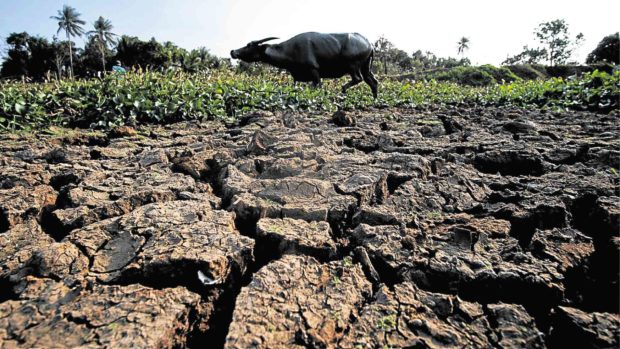El Niño impact on economy minimal, says BSP official
The looming return of El Niño as early as June is expected to have no significant impact on prices of goods and services, but the Marcos administration’s economic team has lined up activities to address this, especially on food supply.
Francisco Dakila Jr., Deputy Governor at the Bangko Sentral ng Pilipinas (BSP), said in a press briefing that, based on past occurrences of El Niño, the climate phenomenon may raise inflation by 0.1 percentage point.
“Our assessment is keyed in to the latest climate advisory of Pag-asa (Philippine Atmospheric, Geophysical and Astronomical Services Administration) where a weak to moderate El Niño episode is expected to emerge by June-July-August, and likely to persist until the first quarter of next year,” Dakila said.
“The main channels of [El Nino’s] impact [on inflation] would be possible higher crop prices and electricity rates,” he added. “Having said that, the government needs proactive interventions.”
In a separate media briefing, Finance Secretary Benjamin Diokno said the matter of inflation was the top item on the agenda of the first Cabinet-level meeting of the Economic Development Group or EDG.
Diokno said that among the proposed short-term measures to mitigate food inflation is strengthening the implementation of biosecurity and hog repopulation programs through continuous monitoring of the African swine fever, and implementation of the Integrated National Swine Production Initiatives for Recovery and Expansion or Inspire.
The finance chief said that with a forecast for a weak-to-moderate El Niño, they do not expect a significant reduction in local production, especially of rice and corn.
“As a result, we do not foresee a surge in food prices,” Diokno said.
El Niño brings to the Philippines lower than usual rainfall, or even drought, which threatens the output of crops and other produce.
To prepare for and mitigate the impact of El Niño, the government is taking initiatives related to the retooling and strengthening of the Disaster Task Force; weekly monitoring and updating of local field conditions; and information, education and communication (IEC).
For areas that are particularly vulnerable to the effects of El Nino, the government is pushing efforts to save production such conducting cloud seeding operations; shifting to high-value crops the need less water; providing pumps and engine sets for irrigation; and providing short-gestation or drought-tolerant seed varieties as well as planting materials, fertilizers, and pesticides/herbicides.—RONNEL W. DOMINGO

